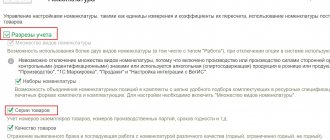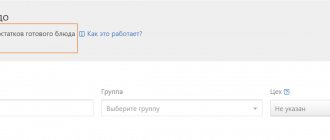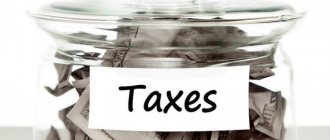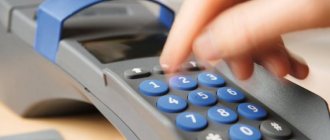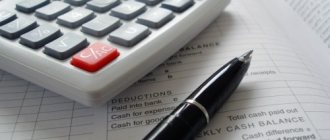published: 08/12/2016
By virtue of Art. 228 of the Tax Code of the Russian Federation, taxpayers specified in paragraph 1 of Art. 228 of the Tax Code of the Russian Federation, independently calculate the amount of tax payable to the appropriate budget.
Clause 1 of Art. 228 of the Tax Code of the Russian Federation includes individuals in a separate category - based on the amounts received from the sale of property owned by these persons and property rights.
By virtue of Articles 218 and 219 of the Civil Code of the Russian Federation, the person using the land plot is the owner of the fruits obtained. In addition, in accordance with paragraphs 2 and 3 of Art. 2 of the Federal Law of 07.07.2003 N 112-FZ “On personal subsidiary farming”, personal subsidiary farming is carried out by a citizen or a citizen and members of his family living together with him and (or) jointly carrying out personal subsidiary farming with him in order to satisfy personal needs for a plot of land provided and (or) acquired for running a personal subsidiary plot. At the same time, agricultural products produced and processed during the management of personal subsidiary plots are the property of citizens leading private subsidiary plots.
Thus, an LLC purchasing fruits and vegetables from individuals who own agricultural products is not a tax agent. The owners of the property being sold must independently take care of the obligation to calculate and pay taxes.
You may be interested in: Tax dispute lawyer services.
Registration of the procurement act
As a rule, the preparation of the act lies with the buyer. There is no mandatory form, but there is a unified one.
The procurement act refers to the primary documentation and can be drawn up either in a unified form approved by the legislation of the Russian Federation, or in free form, or according to a template developed within the enterprise, including the company’s symbols on paper.
It is printed on a regular A4 sheet immediately at the time of the transaction in two copies, one of which remains with the buyer, the second is transferred to the seller.
The document must necessarily contain detailed information about the organization purchasing the product and the individual selling it. Information concerning a citizen must include his passport details and residence address. A special table must contain a complete list of purchased food, as well as data on its quantity and cost. The document must be certified by both parties.
If the purchase of goods occurs from an individual entrepreneur without forming a legal entity, then the act must indicate information about the tax office that issued the TIN and IP certificate.
Features of citizen participation in government procurement
Purchasing from an individual by a legal entity is a traditional practice for our country. Even before the revolution, government supplies could be carried out not only by a merchant, but also by an ordinary person. Is this the case today? Can an individual participate in government procurement?
Part 4, clause 3 No. 44-FZ confirms that any citizen, including those not registered as an individual entrepreneur, can participate in the tender. Government customers can also engage them as experts for situations specified by law (Part 1, Clause 2, Article 41 No. 44-FZ).
But these suppliers cannot participate in tenders intended only for SMP and SONKO (Article 30 No. 44-FZ), because do not belong to such categories of organizations (Federal Law No. 209-FZ).
Please note that recently sites for joint purchases (SPs) have appeared on the RuNet. These kinds of sites for joint venture procurement of individuals have nothing to do with government procurement. There are a number of features in public procurement that prohibit collective participation. For example, clause 8 of Art. 51 44-FZ indicates that a work of art created jointly by several citizens is submitted in one application on behalf of one participant.
Payment Features
Art. 861 of the Civil Code of the Russian Federation allows customers to pay non-entrepreneurs both in cash and non-cash, without limiting the amount.
When paying in cash (for example, goods were purchased from an individual by a legal entity), payment for the transaction is confirmed by a cash receipt order, and in case of non-cash payment - a payment order and a bank statement from the buyer.
In times of crisis, entrepreneurs involved in the food business prefer to purchase food products from the population. Such transactions are beneficial to both parties: citizens immediately receive cash without waiting for the products to be sold to end consumers, and businessmen in return receive high-quality food products at a low price.
When purchasing products from the population, businessmen are faced with many questions: how to draw up a purchase act from the population, is it necessary to withhold personal income tax when paying for sold agricultural products, how to confirm the expenses incurred in tax accounting?
ACCOUNTING MAINTENANCE FOR CATERING ORGANIZATIONS
Accounting for transactions involving the purchase of products from the population
For trading companies, records of purchased products are kept in account 41 “Goods” (clause 7.9 of the Methodological Recommendations for accounting and registration of operations for receiving, storing and dispensing goods in trade organizations, approved by letter of the RF Committee on Trade dated July 10, 1996 No. 1- 794/32-5), and the margin is reflected using account 42 “Trade margin”.
In the event that agricultural products are used as raw materials, then they are taken into account as inventories at the actual cost - the costs of their acquisition (clause 2, clause 5, clause 6 of the Accounting Regulations “Accounting for Materials”). -industrial reserves", approved by Order of the Ministry of Finance of the Russian Federation dated 06/09/2001 No. 44n).
When transferring raw materials into production, its actual cost is taken into account as part of expenses for ordinary activities (clause 5, clause 7, clause 8 of the Accounting Regulations “Expenses of the Organization”, approved by Order of the Ministry of Finance of the Russian Federation dated May 6, 1999 No. 33n ).
As a rule, settlements with individuals for purchased agricultural products are carried out through an accountable person.
EXAMPLE No. 1
The businessman purchased new potatoes from the population for subsequent sale through a grocery store. The purchasing price of potatoes from the population was 20 rubles per 1 kg. And the selling price is 30 rubles per 1 kg.
Let's assume that a businessman purchased and sold 4 tons of potatoes.
The tax base for VAT will be:
4,000 kg (30 rubles – 20 rubles) = 40,000 rubles.
The amount of VAT payable to the budget will be: 40,000 rubles x 10/110 = 3,636.36 rubles.
When selling vegetables (potatoes), the calculated VAT rate is applied - 10/110 (in paragraph 2 of Article 164 of the Tax Code of the Russian Federation, paragraph 4 of Article 164 of the Tax Code of the Russian Federation).
Let's consider the procedure for issuing invoices based on the conditions of example No. 1 (Appendix No. 1 to the Decree of the Government of the Russian Federation of December 26, 2011 No. 1137).
Column 5 (“Cost of goods (work, services), property rights without tax - total”) indicates the inter-price difference - 40,000 rubles.
Column 6 (“Including the amount of excise tax”) indicates “without excise tax.”
Column 7 (“Tax rate”) indicates the estimated rate of 10/110.
Column 8 (“Tax amount presented to the buyer”) shows the calculated amount of VAT on the inter-price difference - 3,636.36 rubles.
Column 9 (“Cost of goods (work, services), property rights with tax - total”) indicates the cost of products sold including tax - 120,000 rubles (4,000 kg x 30 rubles).
In the example, a businessman bought potatoes in bulk for subsequent retail sale.
COST OF ACCOUNTING SERVICES FOR LLC
If the potatoes are processed, then, according to the regulatory authorities, VAT will be calculated on the entire cost of the finished processed product, and not on the inter-price difference (clause 1 of Article 154 of the Tax Code of the Russian Federation, Letter of the Ministry of Finance of the Russian Federation dated January 26, 2005 No. 03-04-04/01).
That is, when selling goods made from agricultural products, the tax base is determined based on the full cost of the goods sold. For example, a businessman purchased fresh mushrooms, but retails frozen sliced mushrooms.
Other taxes arising from the company when purchasing products from the population
Expenses for the purchase of agricultural products are taken into account as part of material expenses for the purpose of calculating income tax (clause 2 of article 254, clause 2 of article 272 of the Tax Code of the Russian Federation).
In addition, all expenses recognized in tax accounting must be economically justified, documented and related to activities aimed at generating income.
In order to take into account costs as part of material costs, it is necessary to have documentary evidence of the costs incurred - a procurement act, an approximate form of which is presented above.
When purchasing products from individuals, businessmen who pay VAT cannot deduct input VAT. In this case, the tax base in terms of VAT is an inter-price difference, which is the difference between the sale price and the purchase price of the product (clause 4 of Article 154 of the Tax Code of the Russian Federation). Businessmen have this right in the case of selling agricultural products and their processed products purchased from individuals, if the products are included in a special List approved by Decree of the Government of the Russian Federation of May 16, 2001 No. 383 (hereinafter referred to as the List). For example, the List contains such products as meat and by-products of livestock and poultry, milk and dairy products, eggs, fish of all types, bee honey, beeswax, foundation, grains and legumes, oilseeds, sugar beets, potatoes, open and protected ground vegetables , melons, food and feed crops, fruits of pome and stone fruits, grapes, citrus fruits, tea leaves, cultivated and wild nuts and berries, cultivated and wild (fresh) mushrooms.
Important!
If an individual, without registering as an individual entrepreneur, systematically purchases agricultural and related products from individuals, and subsequently resells them, then this activity is qualified as entrepreneurial with the corresponding additional charge of VAT, penalties and fines (Definition of the Supreme Court of the Russian Federation dated July 20, 2016 No. No. 306-KG16-9087).
How to calculate and withhold personal income tax for an individual?
When purchasing agricultural products from the population, the question arises: does a businessman need to withhold personal income tax from the income paid to an individual?
As a general rule, income of individuals from the sale of property owned by them is subject to personal income tax, the payment of which is made by these individuals independently (clause 5, clause 1, article 208, clause 2, clause 1, article 228 of the Tax Code of the Russian Federation).
The list of income not subject to personal income tax is established by Article 217 of the Tax Code of the Russian Federation.
Thus, an individual who has a personal subsidiary plot and receives income is exempt from paying personal income tax upon presentation of a document issued by the relevant local government body, the board of gardening, gardening and vegetable gardening partnerships, which confirms that the products sold were produced by the individual on property owned by him or his family members a plot of land used for personal farming (clause 13 of article 217 of the Tax Code of the Russian Federation).
ACCOUNTING OUTSOURCING, PRICES
EXAMPLE No. 2
The company purchased cattle in live weight, processed and sold beef of the 1st and 2nd categories, by-products obtained as a result of the slaughter of livestock purchased from individuals who are not taxpayers.
In this case, the volume (quantity in units of measurement) of purchased livestock may practically not correspond to the volume (quantity in units of measurement) of meat and offal as a result of slaughtering and processing, since waste is generated during processing.
The court found it legitimate to apply the generally established procedure for calculating VAT to industrially processed and sold products, in which the tax base is determined based on the full cost of goods sold without reducing it by the cost of agricultural raw materials purchased from individuals (Decision of the Altai Territory AS of December 23, 2015 No. A03 -11035/2015).
But this position is not controversial.
In another case, judges, based on a literal interpretation, taking into account the rules of grammar of the Russian language, indicated that the norm of paragraph 4 of Article 154 of the Tax Code of the Russian Federation applies to the sale of agricultural products and their processed products according to the list approved by the Government of the Russian Federation. For example, the company sold horse meat of the 1st and 2nd categories, beef of the 1st and 2nd categories, obtained as a result of the slaughter of livestock purchased from individuals who are not taxpayers. At the same time, the List includes both livestock, poultry and rabbits in live weight, as well as meat and offal of livestock and poultry.
As the judges noted, the rule for determining the tax base, clause 4 of Art. 154 of the Tax Code of the Russian Federation applies not only to situations where products purchased from individuals and products of their processing are resold in an unchanged (unprocessed) form, but also in the case of the sale of finished products made from these products and products of their processing. For example, livestock live weight is not a finished product, but a raw material for meat production. Consequently, the company had the right to apply clause 4 of Article 154 of the Tax Code of the Russian Federation, that is, to calculate VAT on the inter-price difference (Resolution of the AS of the East Siberian District dated July 30, 2015 No. A78-7926/2014).
What is a personal subsidiary plot?
First of all, it is a form of non-entrepreneurial activity for the production and processing of agricultural products (Article 2 of the Federal Law of July 7, 2003 No. 112-FZ “On Personal Subsistence Farming”, hereinafter referred to as Law No. 112-FZ).
The sale by citizens running private farms of agricultural products produced and processed while running private farms is not entrepreneurial activity (clause 4 of Law No. 112-FZ).
Important!
Thus, maintaining a personal subsidiary plot is not an entrepreneurial activity; the purpose of using land plots provided for running a personal subsidiary plot is to satisfy the personal needs of the citizen and his family members (Decision of the Tyumen Region Administration of January 30, 2017 No. A70-12797/2016 ).
TAX AUDIT
The second condition for exemption from personal income tax is the presence of a document confirming that the products sold were actually grown by the individual himself, i.e. he is not a reseller.
In this case, the following conditions must be simultaneously met:
- the total area of the land plot (plots), which (are) located (at the same time are) under the right of ownership and (or) other right of individuals, does not exceed the maximum size established in accordance with paragraph 5 of Article 4 of Law No. 112-FZ. The maximum size of the total area of land plots that can be simultaneously owned and (or) otherwise owned by citizens running personal subsidiary plots is set at 0.5 hectares. The maximum size of the total area of land plots may be increased by law of a constituent entity of the Russian Federation, but not more than five times.
- personal subsidiary farming in these areas is carried out without the involvement of hired workers in accordance with labor legislation.
Important!
Thus, when paying income to an individual for purchased products, a company or entrepreneur is not a tax agent for personal income tax. And this does not depend on whether these operations are exempt from personal income tax or not.
